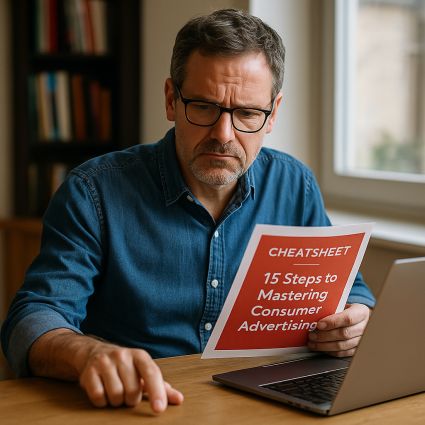Everyday, I see fascinating offers in my feeds or in emails. I get endless offers for cheatsheets, mini-books, and proven playbooks. Just recently: “10 foolproof outbound email techniques,” “Master [Insert your favorite methodology] with this cheatsheet.” “Your first 90 days as CRO,” “Killer demo tricks and techniques.”
I read them. They aren’t wrong. But they are not great, they aren’t differentiated, they don’t spark one’s imagination.
One CRO guide had me sitting behind screens, reading reports, and rolling out new processes. Concepts like, “Get to know your customers and team” showed up exactly twice. Yet in every executive role I’ve had, my first 90 days were 75% wandering—talking to people, listening, learning how things really worked. After that, I still spent half my time doing it.
What most cheatsheets miss is how the work actually gets done, why it’s important, how to actually make things happen, how things go wrong. They lose the whole meaning of the work, focusing on the mechanics.
They give you the mechanics-the steps without understanding. Answers without insight. And, ironically, if a customer asks, “Tell me more…..” or “Why should I be concerned, what’s it mean to me,” we are stumped! We don’t know how to actually have a conversation.
Cheatsheets are the “Cliff Notes” for business. In high school, rather reading War And Peace, I used the Cliff Notes. I recall my answer in the essay question about the book, “It’s about war…. And it’s about peace…..” I passed the test, barely, but had totally missed the experience and magic in every page of the book.
If we strive to be top performers in whatever our chosen field or job, we do that through mastery. There are no shortcuts, no cheats to experience and mastery.
Now it’s even worse, there are cheatsheets for developing cheatsheets. With the right LLM prompt, anyone can look like an expert.
It took me about 20 minutes. I developed the slickest Canva deck on “15 Steps In Mastering Consumer Advertising,” even though I am clueless about the topic. It was flashy, informative, seemed to hit on the key issues, and was presented with an air of authority and expertise. I sent it to a friend, an expert in consumer advertising. At first he was intrigued, but as he read further, he said, “It isn’t wrong, it isn’t great, there are no sparkling insights. It’s all very basic–underwhelming!
But if your target audience knows even less, the LLMs enable you to look like a genius. The only problem is most of our customers know their business and jobs deeply.
But, I’ve bought into the idea of instant expertise. I’m expanding my repertoire (stay tuned for the LI profile update). My goal is to displace Juan Valdez as the “Most interesting man in the world.”
I’m expanding my expertise into three areas: “Becoming a brain surgeon without slipping up,” “Mastering 10,000 hours of practice in 30 minutes,” “I won the Kona Ironman with no practice! You can too!”
I’ll be publishing these on LI. Bring your likes, “Hit me up,” and “You are rockin it Bro!”
Here’s the bottom line. There are no shortcuts to mastery, no simple prompts. Mastery comes from showing up and doing the work. It’s about gaining experience, learning from mistakes, and continuing to grow, innovate, and adapt.
Here is the AI driven discussion of this post. Enjoy

Leave a Reply